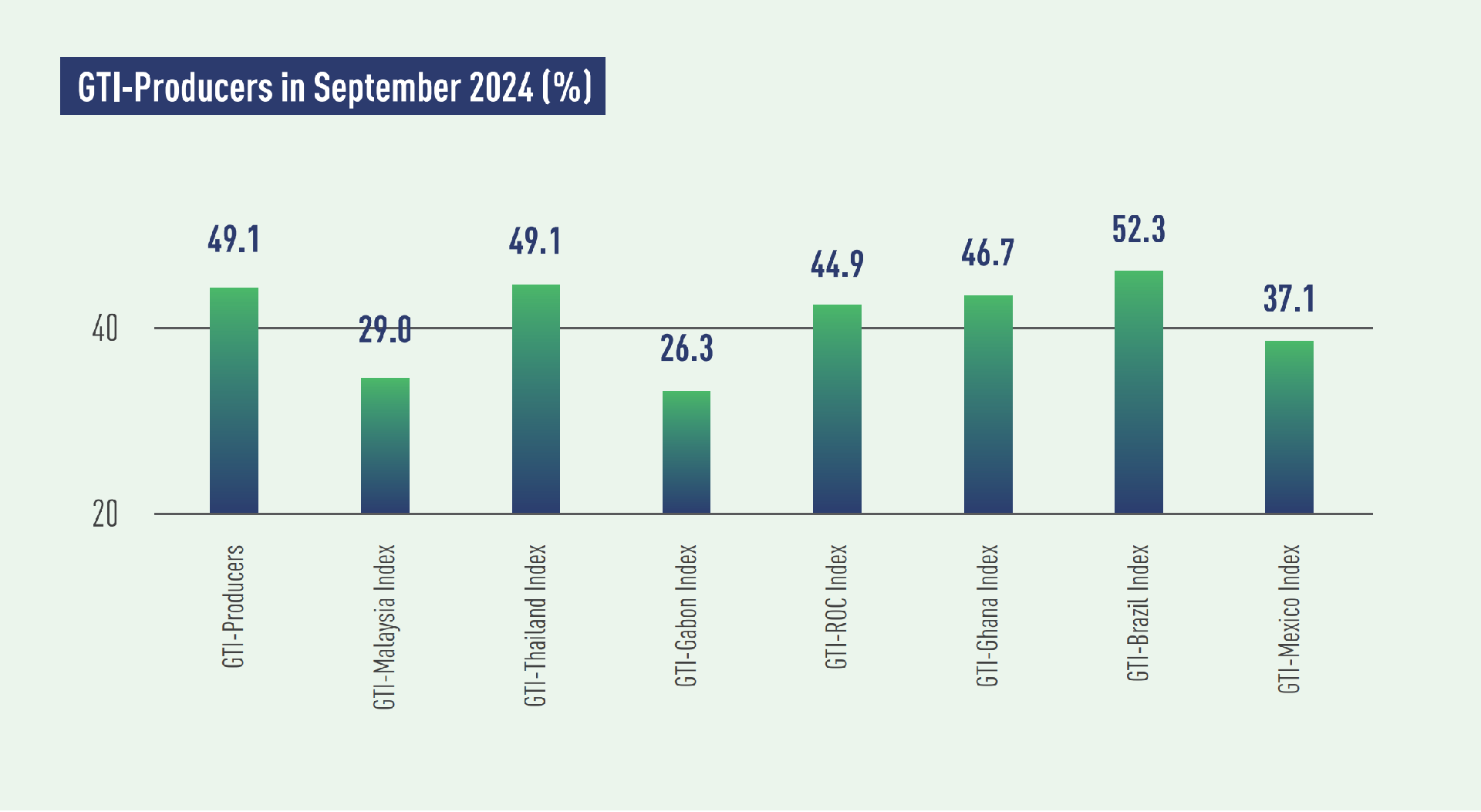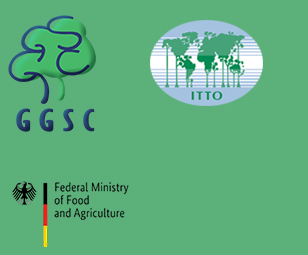

In September 2024, the GTI-Producers registered 49.1% and had stayed below the critical value (50%) for five consecutive months, indicating a continued downturn for the overall prosperity of the timber harvesting and primary processing industries in the pilot producing countries. Compared to the previous month, the timber sector in Brazil showed signs of recovery, while sluggish performance was observed in other countries.
In Asia, the GTI indexes for Thailand and Malaysia registered 49.1% and 29.0%, respectively, both in the contraction range below the critical value. Harvesting and production in both countries decreased from the previous month, especially in Malaysia. On the demand side, export orders of Thai sample enterprises declined for the first time in the recent nine months, while supported by strong domestic demand, the volume of new orders continued to increase. The total volume of orders for GTI-Malaysia sample enterprises decreased compared to the previous month, with some enterprises reporting that demand in the timber market was not enough, and the appreciation of the ringgit against the US dollar was unfavorable for the export market.
In Africa, the GTI indexes for Ghana, the Republic of the Congo (ROC), and Gabon were at 46.7%, 44.9%, and 26.3%, respectively, all in the contraction range below the critical value. Compared to the previous month, the total harvesting volume held steady in Ghana, while decreased in ROC and Gabon. As to production volume and orders, a decrease was observed in all the three countries (especially in Gabon). According to feedback from GTI-Gabon sample enterprises, the contraction of international market demand for timber had led to a decrease in new orders. At the same time, timber enterprises in the country felt hindered by high production costs and frequent power outages, which also resulted in a sharp decline in timber production.
In Latin America, the GTI index for Brazil stood above the critical value (indicating expansion) and registered 52.3%. The volume of harvesting in Brazil declined from the previous month due to wildfires, however, demand in the timber market picked up, with production volume and orders of leading enterprises represented by the GTI-Brazil index increasing after four months of decline. The GTI index for Mexico registered 37.1%, which was in the contraction range below the critical value. During the rainy season, wood raw materials often got moldy, leading to a contraction in the overall performance of wood harvesting and market sales in Mexico. In addition, rising labor costs, intensifying inflation, and surging operating costs had made local timber lose competitiveness in terms of pricing against imported timber.

| E-mail:ggsc@itto-ggsc.org | Tel:86-10-62888626 |


Sigh Up for Emails |
|